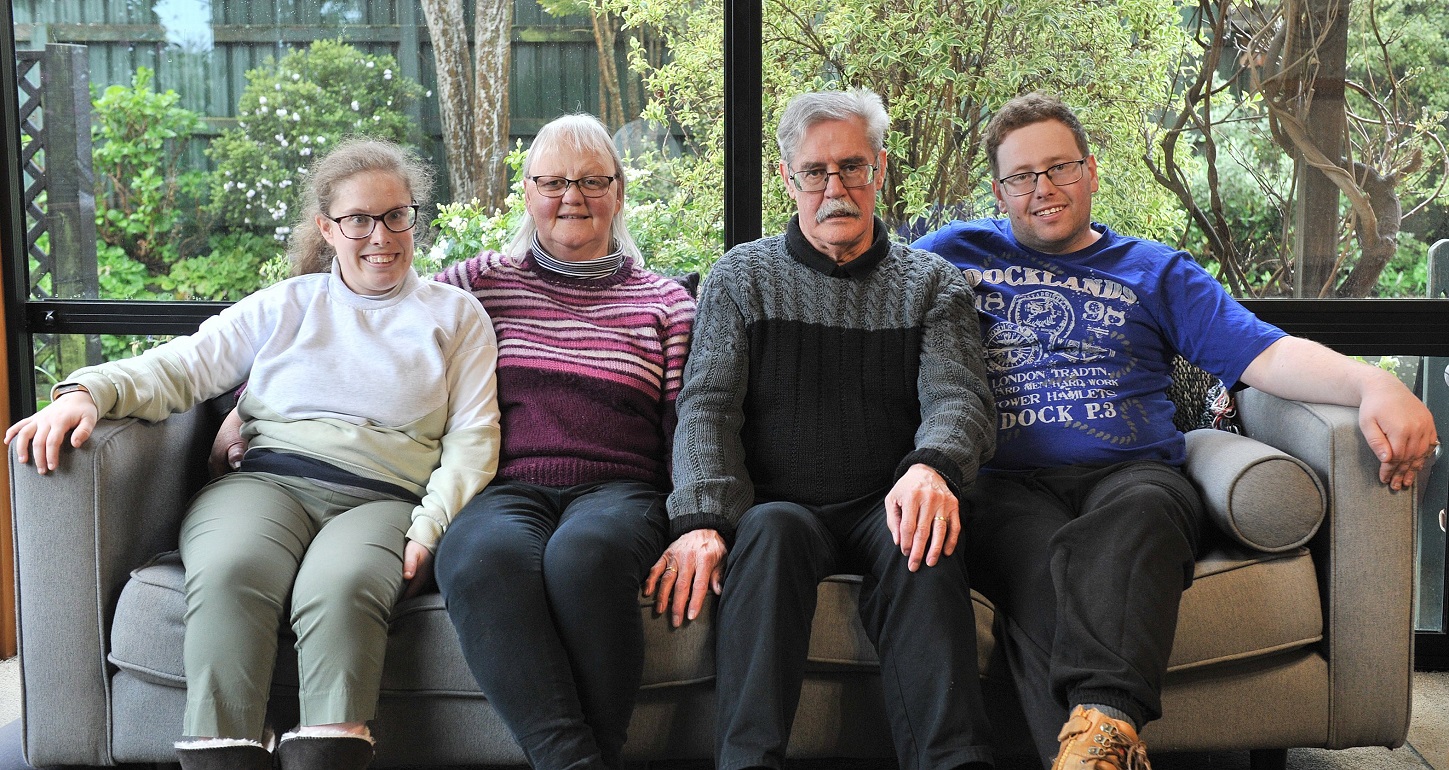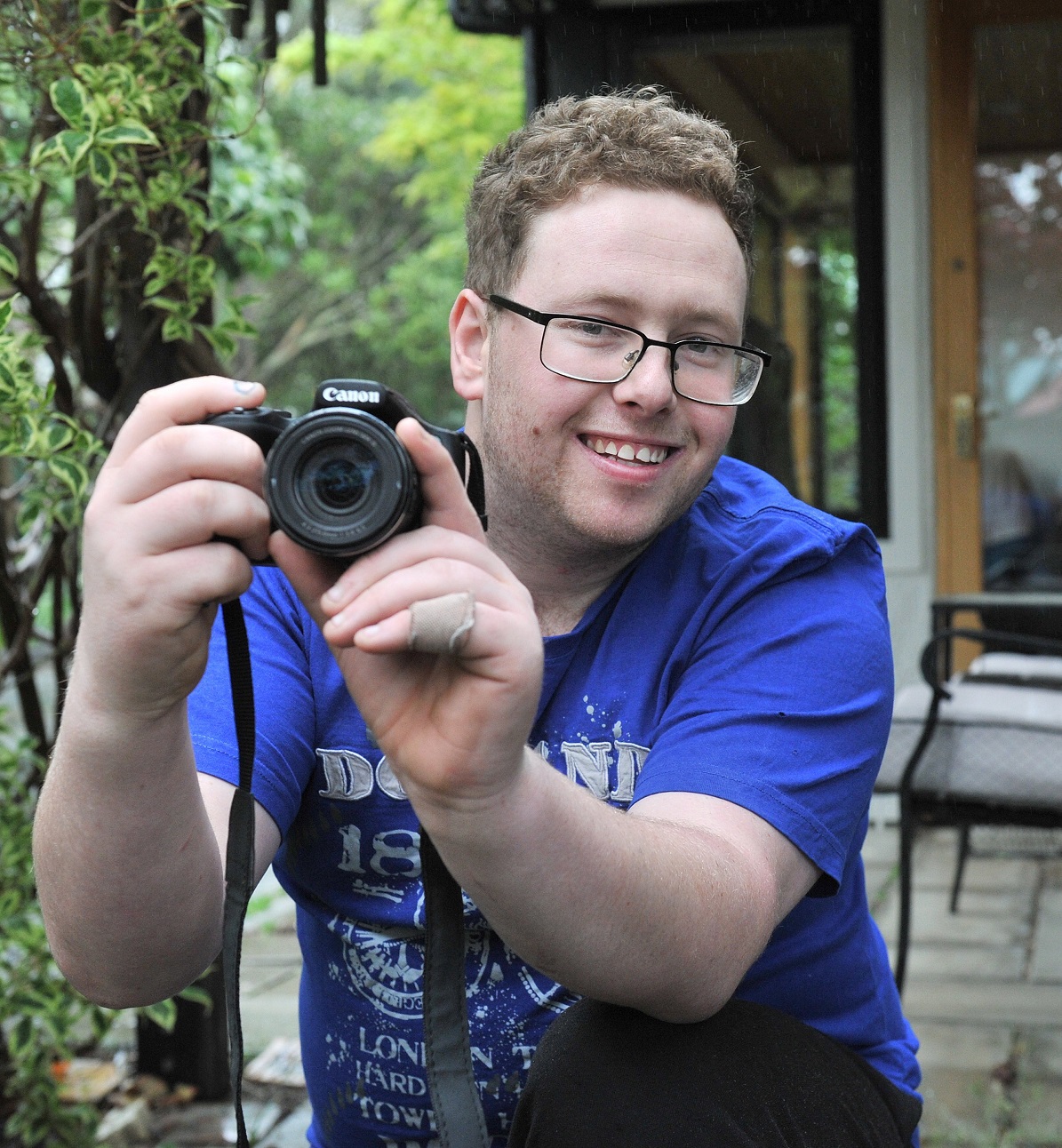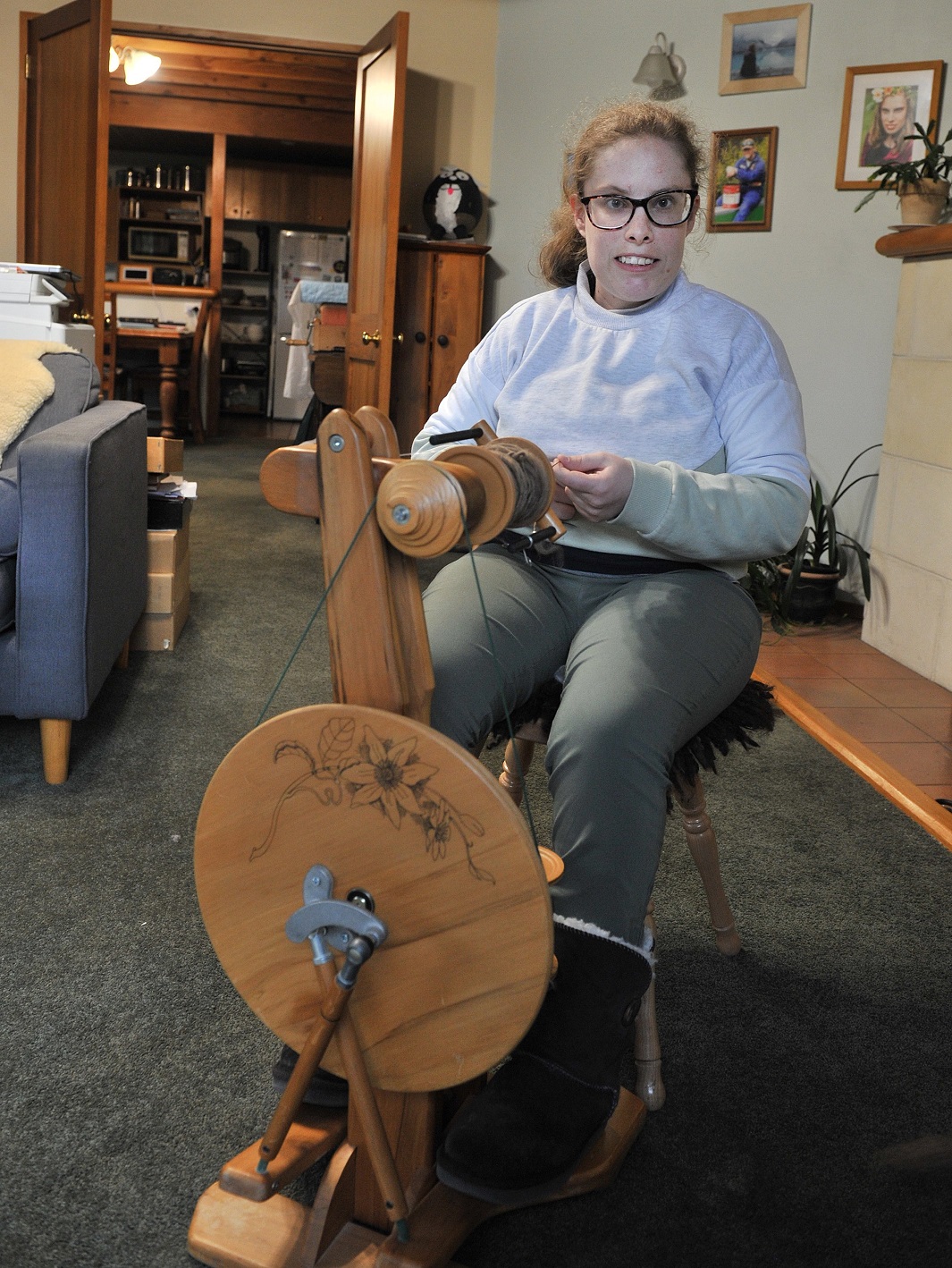
It plays on her mind. What will happen when her foster parents are too old to care for her?
The question has whispered itself more persistently since an email six weeks ago saying, in effect, despite qualifying for supported living she is unlikely to get into a residential care home in the foreseeable future.
"I do think about it," Chardonnay Kyle, 24, says, glancing out the window of her foster parents’ Mosgiel home.
"I would like to have someone to look after me when Mum and Dad can't do it any more."
For Chardonnay, this knock-back following the government’s decision to strip Whaikaha of its role delivering disability support services looms as yet another high hurdle in a quarter century of life filled with obstacles, hopes and frustrations for her and twin brother Tyrone.
For their foster parents, Elaine, 68, and Chris Gousmett, 70, it is distressing news that sums up two and a-half decades of battling a broken system to give their children the sort of life everyone should be able to live.
"This change to residential care provision is just one aspect of the whole realm of disability care and support," Elaine says.
"I think they've had a knee-jerk reaction to a problem that has been festering for decades.
"It affects every aspect of a young person's life and their caregiver's life. It affects your health because you're living with this constant chronic stress."
At the start of the millennium, the Gousmetts, who already had a daughter, now living overseas, fostered Chardonnay and Tyrone, 7-month-old twins in state care. They knew Chardonnay had spina bifida and would later discover both children had cognitive impairment and dyspraxia, Tyrone had ADHD and Chardonnay had multiple complex health challenges.
The Gousmetts have never regretted their decision — "We love each of our children. And I think it’s made us more compassionate people. That’s got to be a good thing" — despite it often being a struggle to get required services.
But the ongoing battle came to a head in late-August, when they received an email from the Needs Assessment and Service Coordination (NASC) service. The letter said changes to Whaikaha — the Ministry of Disabled People — after a scathing independent review of the new ministry’s finances, meant a budget cap on residential services would leave Chardonnay well down an ever-longer waiting list. That was despite her having previously qualified for, and having spent 15 months living in, a residential care home. She only came back to the Gousmetts’ in July after difficulties with the previous living situation left her looking for a different residential care home.
"There will be a point when we won't be able to manage with Chardonnay," Chris says.
"We're wanting to get her settled and used to living in that kind of arrangement while we're still able to provide support.
"But also it gives her a greater sense of independence being away from us and mixing with people her own age, mixing with her peers and doing things her peers do."

They see it all stemming from a badly thought out plan, implemented from the 1990s, to move people with a range of disabilities — including mental, intellectual and physical — from institutionalised living into the community.
Elaine agrees large institutions such as Cherry Farm, north of Dunedin, were problematic.
"But they weren’t replaced with anything; certainly nothing adequate," she says.
"It was called community care. Basically, it meant the community was left to fend for itself in caring for these people."
The Gousmetts draw on 24 years’ personal experience to illustrate the breadth of problems in the disability sector.
Residential care, they say, has too few beds to meet demand and too few trained staff.
"Some of the staff are really lovely people. But having a background myself as a registered nurse, I would say many were woefully unprepared or inadequately trained for situations which can be quite complex and sometimes incredibly stressful," Elaine says.
Chardonnay’s experience of residential care is mixed. She enjoyed some of the friendships she built but did not appreciate being sent to her room at 7pm when there was only one staff member on overnight duty, as sometimes happened.
Problems in the education system for children with disabilities are "huge", the Gousmetts say.
"The whole of their education life we spent battling to get support."
Chardonnay has motor control difficulties but is a whizz on a digital device. However, a secondary school special needs head teacher once took away her device (provided by the Ministry of Education after extensive testing), telling Chardonnay she needed to "learn to write like everyone else".
When Tyrone’s device broke at school, it took two years to get a replacement.
Tyrone is a young man who loves achievement and independence in equal measure. In 2016, he represented New Zealand at the Special Olympics Trans-Tasman games, winning three gold medals in swimming — but was not mentioned at his school’s end-of-year sports awards.
He also felt "underwhelmed" by the school’s lack of ambition for his academic success. Now living in his own flat, with support, and working at Cargill Enterprises, in South Dunedin, Tyrone is also enrolled in the Cargill Academy where he is studying to gain the final six points needed for NCEA Level 3.
"That’s been bugging me for six years now," Tyrone says.

People with disabilities also face unfair financial barriers, the Gousmetts say.
For example, Chardonnay receives a supported living payment, but she loses the accommodation supplement if she has more than about $8200 in the bank.
"So, she can’t inherit money or be a beneficiary of a trust that distributes income because then she would lose the payment," Elaine says.
In Canada, the limit is $100,000.
"You're not going to become a millionaire, but there you can function in a much better way. You can go on holiday, replace the washing machine if it breaks down — but it's very hard to do all of that on $8000 in the bank."
Overall, they say, support in New Zealand’s disability sector is "patchy, at best".
"What happens is a hole is seen and a patch is put on it, rather than, ‘Let's look at this whole sector and see what it should look like in 10, 15, 20 years time’."
New Zealand Disability Support Network Kia Tū Tahi Tātou chief executive Peter Reynolds agrees there has been decades of "disinvestment in disability support".
Repeated failures to account for inflation mean the sector is underfunded by about 25%, Wellington-based Reynolds estimates.
He says years of consultation without much action have been replaced by a sudden spurt of action without consultation.
"[For example, the] Taskforce to oversee the implementation of the independent review recommendations [has] no voice of disabled people [and] no voice of providers ... [It is] a massive step backwards, driven solely by a concern for the dollar."
Reynolds is concerned the government "is aware of what it is paying, not what it costs". He wants it to get a full picture of the cost, including services now available and new services needed.
"Without these strategic issues being addressed, we will continue to trudge along a short-term-view approach that is unlikely to meet the needs of anyone ... [and is] likely to take us down a path that leads to a higher ultimate cost."
It is a fear shared by Disabled Persons Assembly policy adviser Chris Ford.
"We are hearing that more disabled people, families and whānau are experiencing greater difficulty in getting even basic support like household management and some disabled people are being declined support."

"We want to move from a chronic underfunded DSS [Disability Support Services] system to one that is appropriately funded and supported by government," he says.
To Chris and Elaine, these issues have deep roots; the decisions, ground-shaking implications.
"Why should we as a society, as taxpayers, fund disability care? Simply because we care about each other.
"One of the primary roles under the United Nations Convention on the Rights of Persons with Disabilities is to ensure equality for people with disabilities.
"We're humans, and to reduce that care reduces our humanity."
Now is an ideal time to take stock, Elaine says.
"I would like to see a complete overhaul of the system of provision of care for those with disabilities."
But she thinks the government is operating in partial darkness.
"This is the opportune time, but I don't know that they've got the information they need on which to make decisions that take courage and commitment.
"Nobody knows really how many people there are with disabilities in the country, to what level those disabilities are, where geographically those people with disabilities are located, and to what extent services are provided."
She sees potential for the government to do "something quite unique, compassionate and visionary".
"But unless they have the heart to do it, it will not happen. And in order to have the heart to do it, they have to listen ... Right now, I don't see a lot of listening going on.
"This government will be remembered forever, to its shame, for the way it treated the poor and needy — unless there is a paradigm shift."
The Weekend Mix asked the Ministry of Social Development (MSD) how many residential care beds there were, nationally and in the lower South.
In response, via email, MSD disability support services programme director Alastair Hill said there were 7191 people in care that included community residential, aged care, high and complex forensic care and residential rehabilitation services.

Asked how many people were on the waiting list, Hill said "there is no waiting list for residential care, as such".
"Each Needs Assessment Coordination Service (NASC) throughout the country keeps a record of people who they are working with to co-ordinate residential care, as well as those who may require residential care in the future," he said.
The Mix then asked how many of those people had been on the NASC’s "record of people" for more than one month.
"This is not information we hold," Hill replied.
Disability issues minister Louise Upston agrees information on the disability sector is incomplete and fragmented.
She says responsibility for meeting the needs of disabled people is shared among several government agencies across the health, education and social sectors. This includes the MSD’s Disability Support Services, which funds services for about 50,000 disabled people.
"Many of these agencies collect data on the disability community, but more could be done to improve the consistency and use of this data."
But Upston rejects the claim her government is not listening to people with disabilities, their carers and service providers.
"Since becoming the Minister for Disability Issues ... I have been meeting regularly with groups of disabled people, families, carers and organisations."
A taskforce of senior officials at MSD has been set up to deliver on the recommendations of the independent review panel’s report on Whaikaha, she says.
"I expect the taskforce will be engaging with the broader disability community in due course around eligibility criteria for flexible funding."
The Minister says next year she will begin work, with the disability community, on the next iteration of the national disability strategy.
New Zealand’s current strategy, 2016-2026, is built on a vision of a non-disabling society — "a place where disabled people have an equal opportunity to achieve their goals and aspirations, and all of New Zealand works together to make this happen".
This is the sort of country, the sort of life, Chris and Elaine desire for their children; the care and concern on their faces underline how much they want it.
Chardonnay’s understated, quiet words shout that she wants it too.
"I would like to try to get some more independence. I want to meet more people my age and help out where I can."












